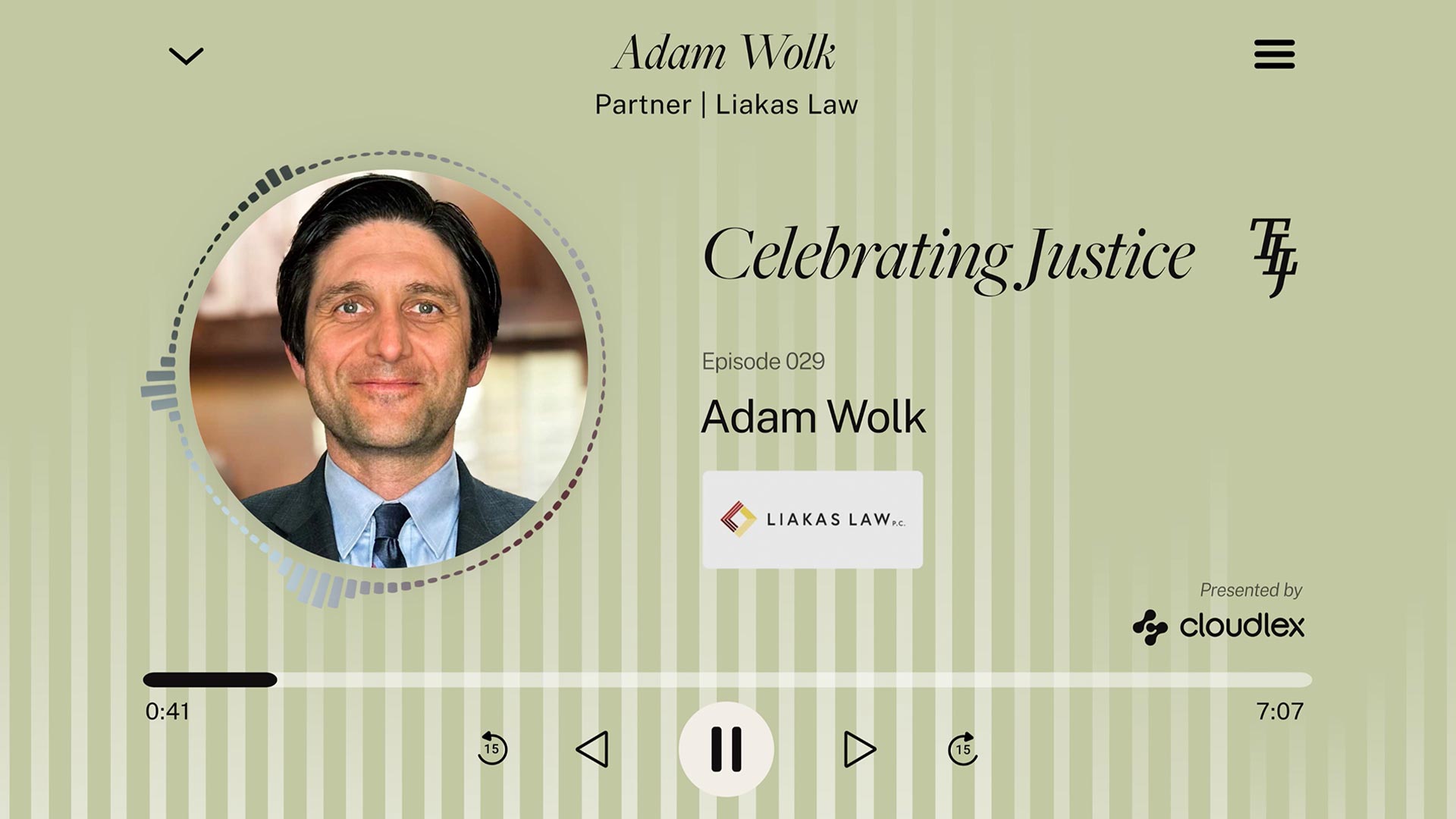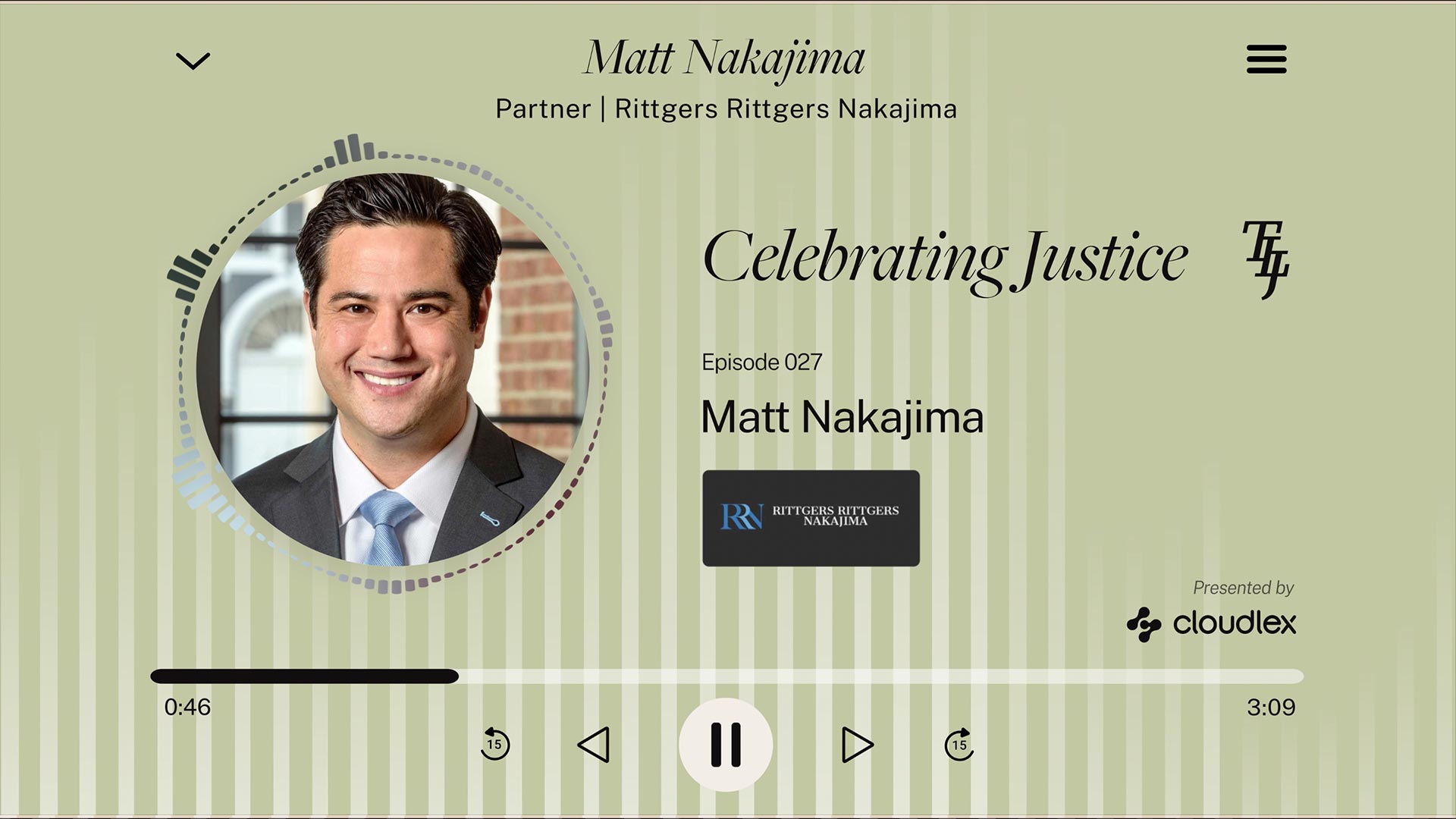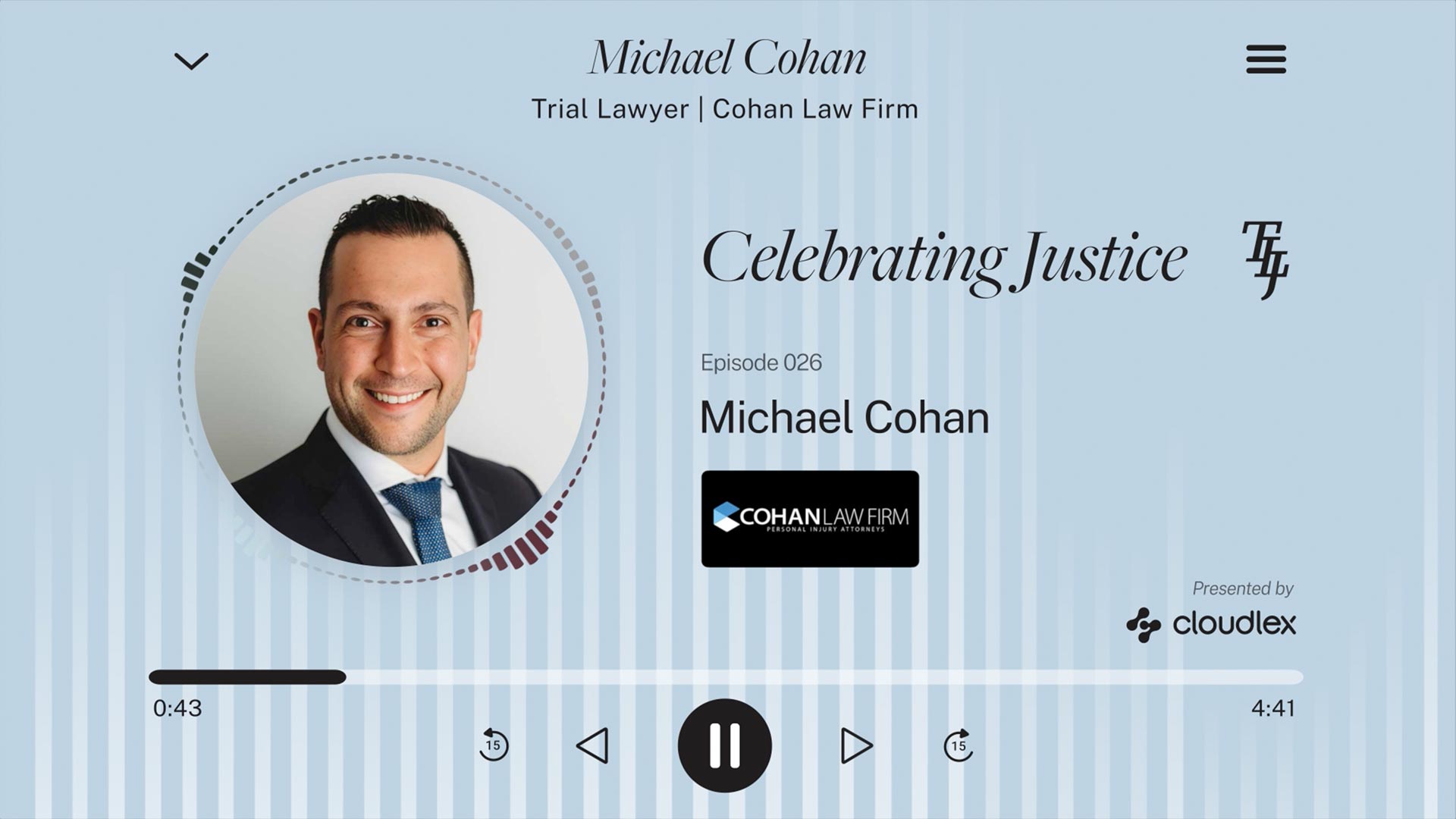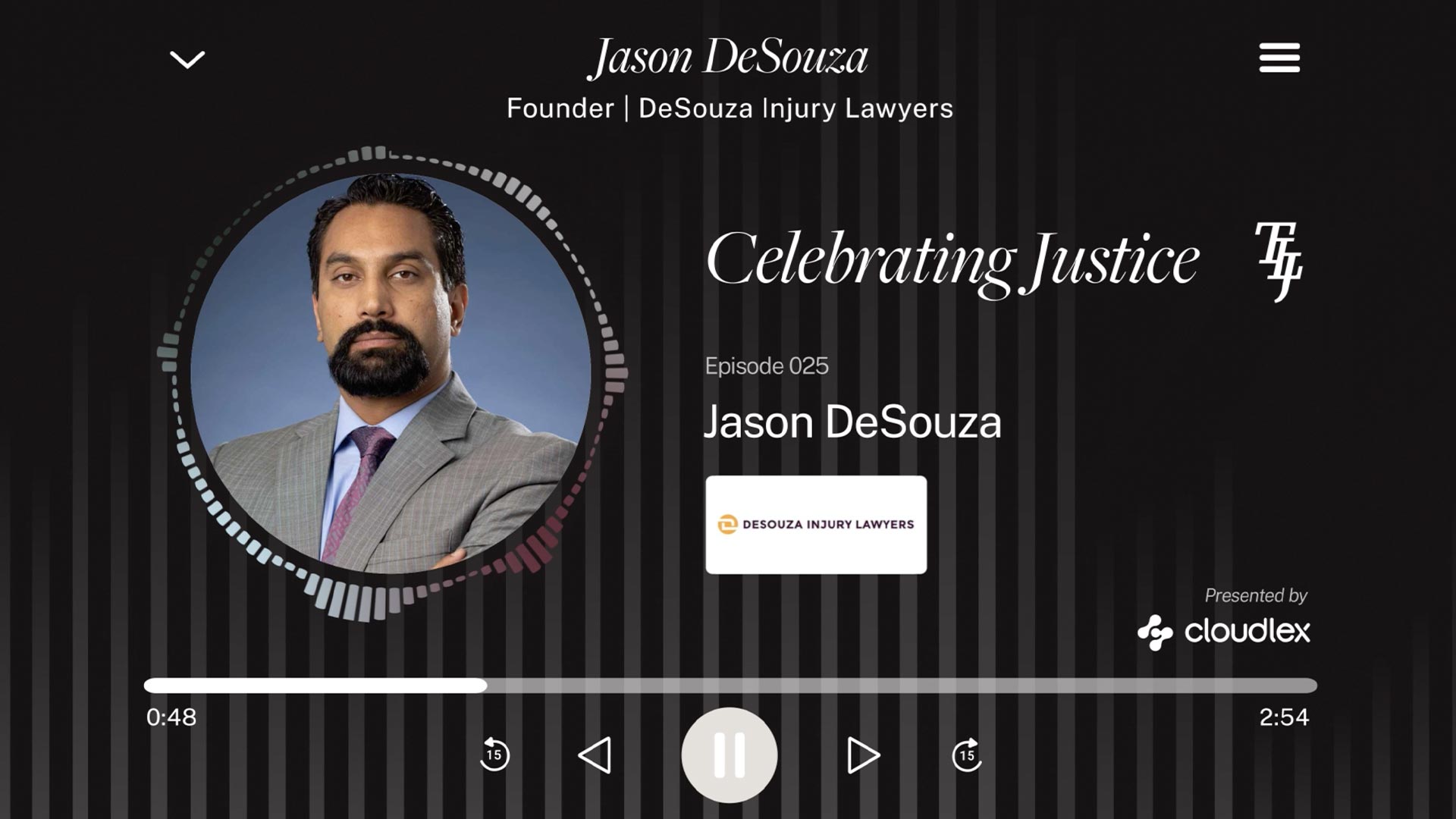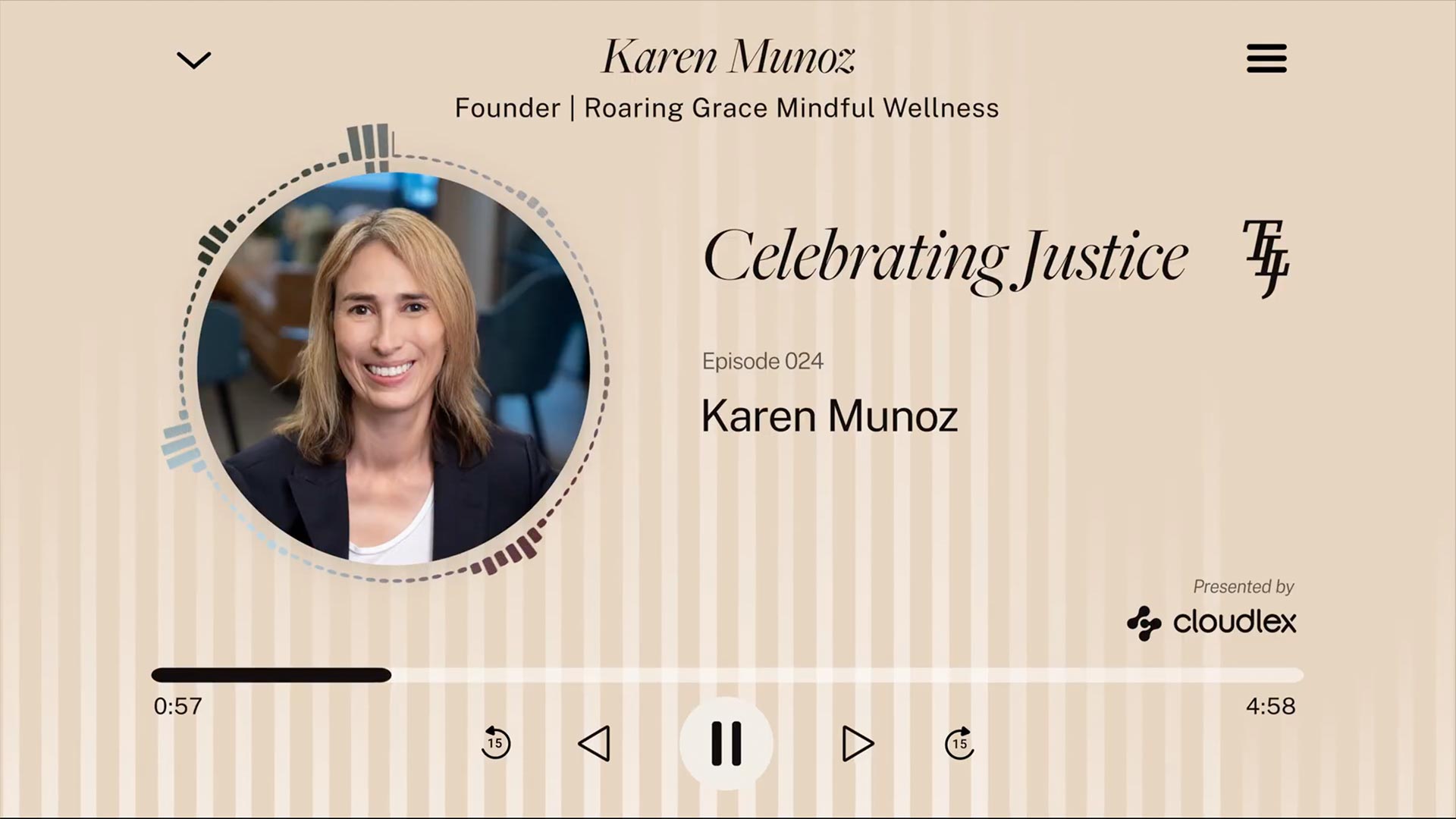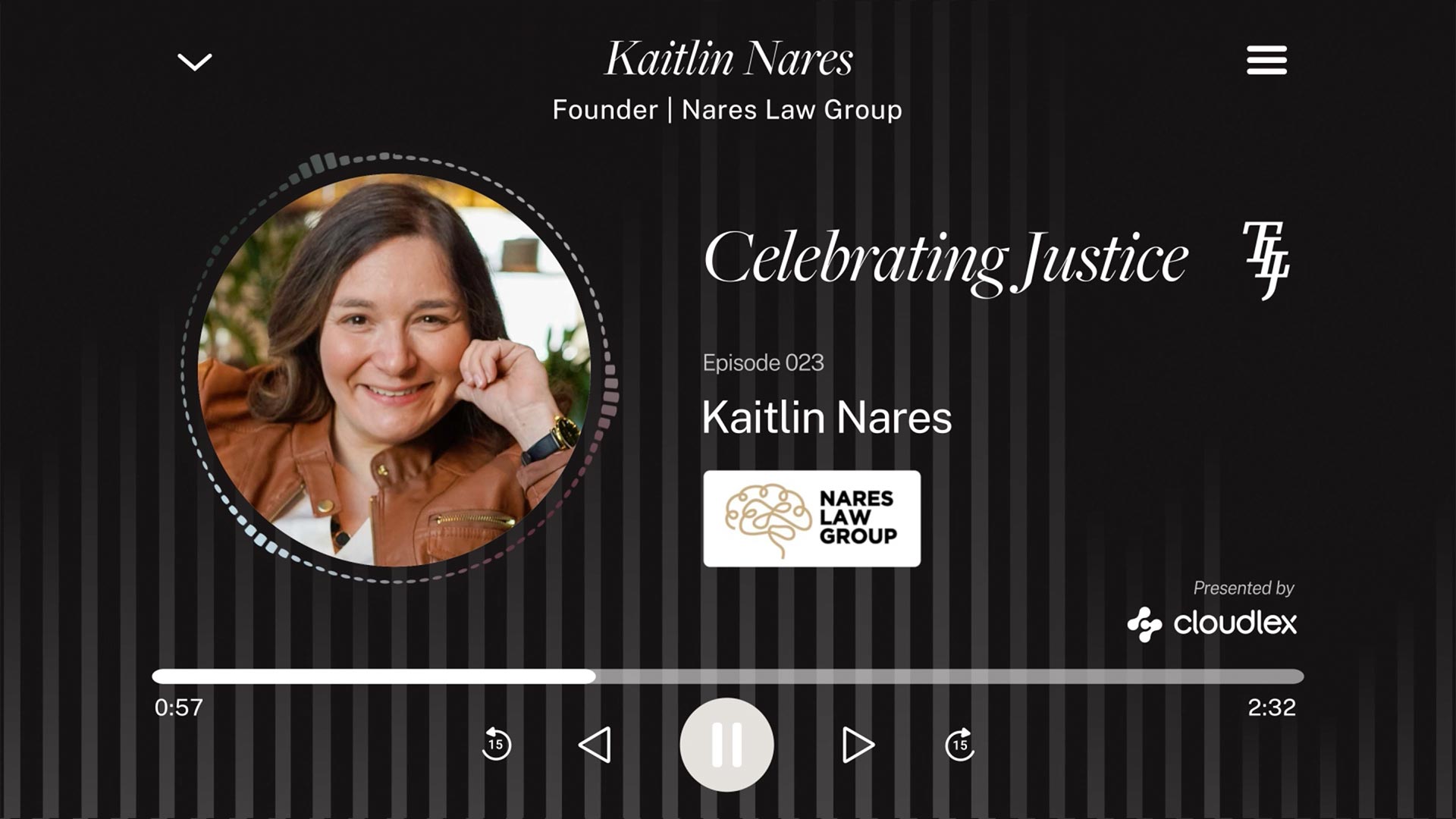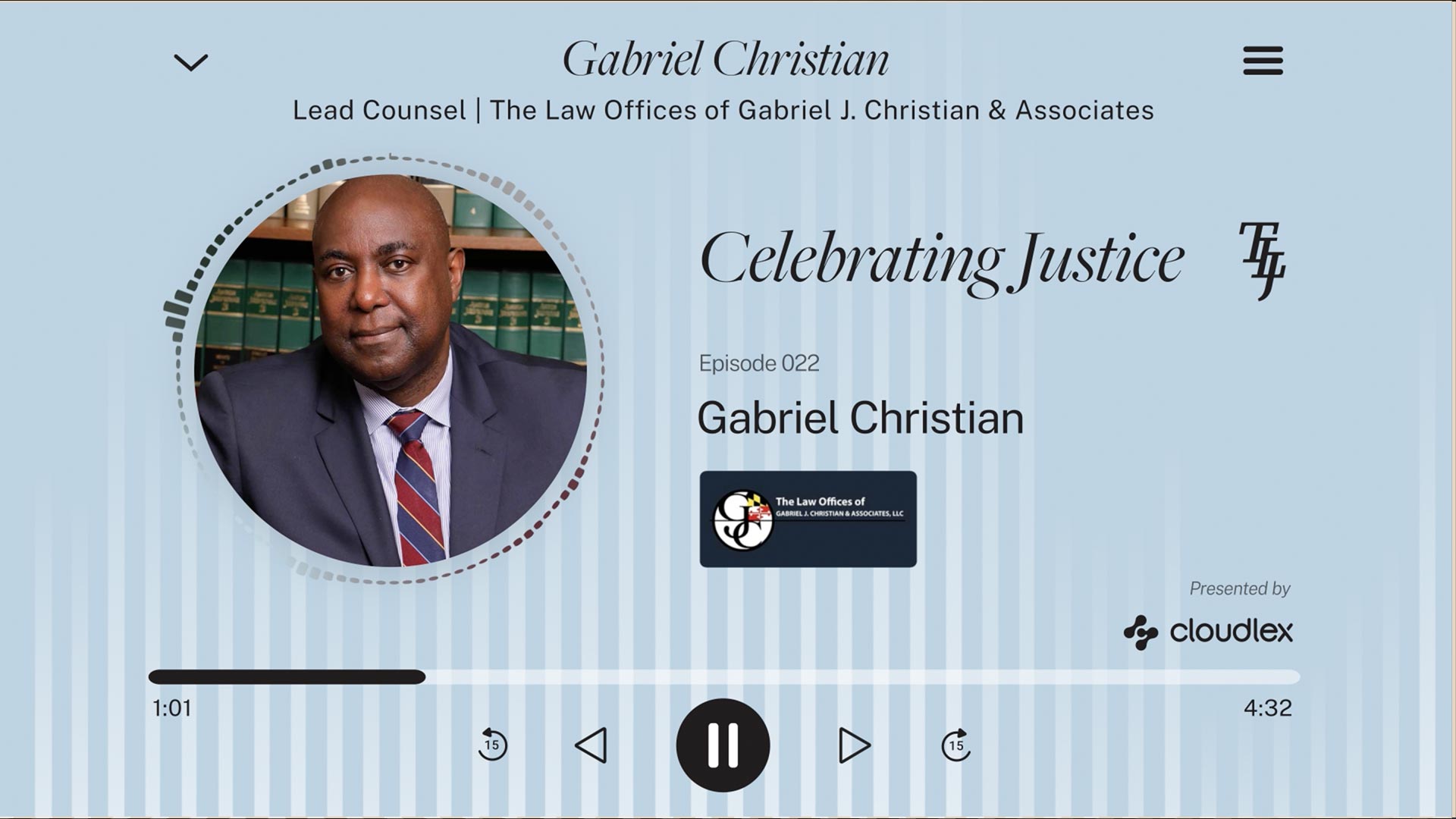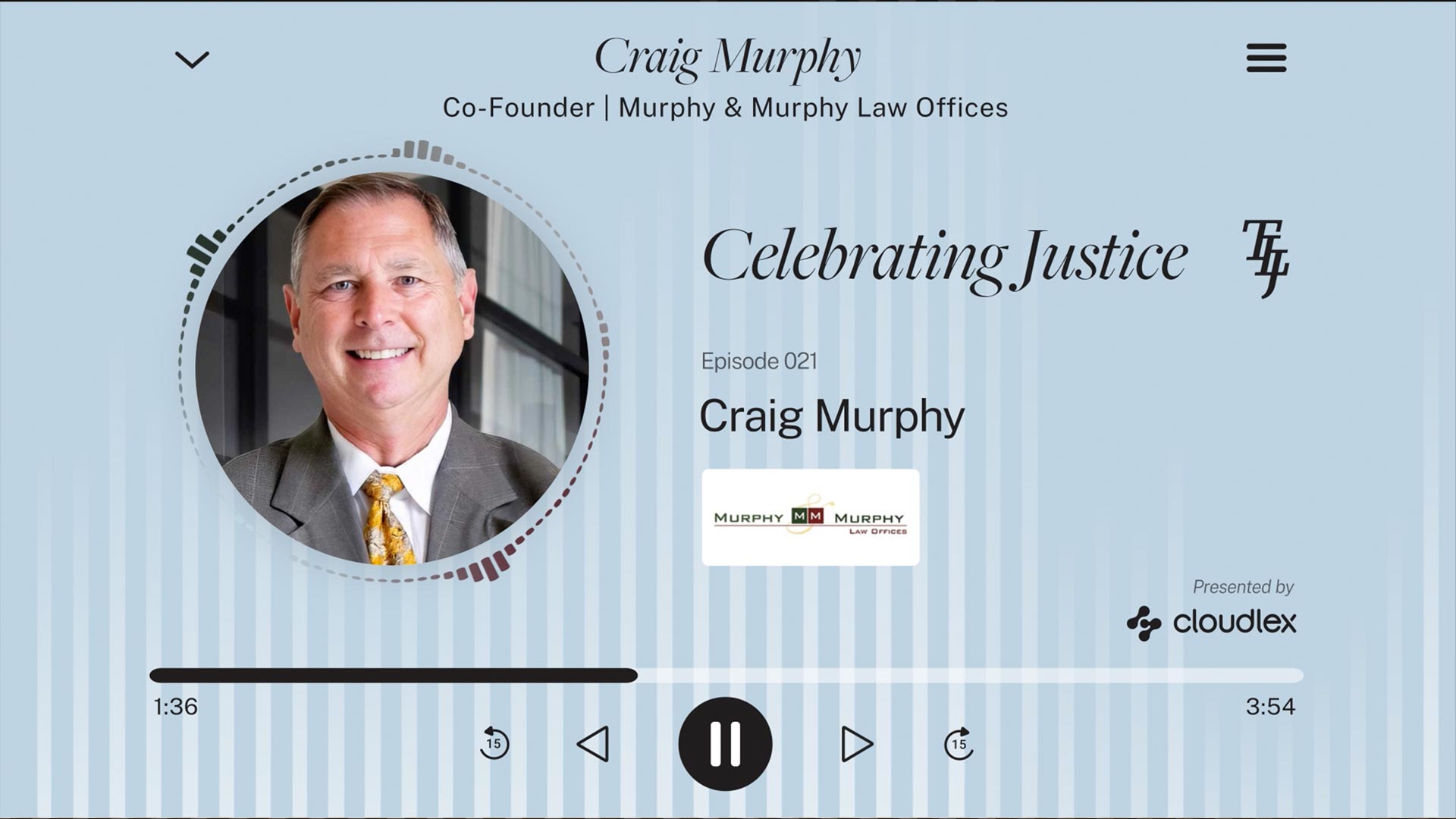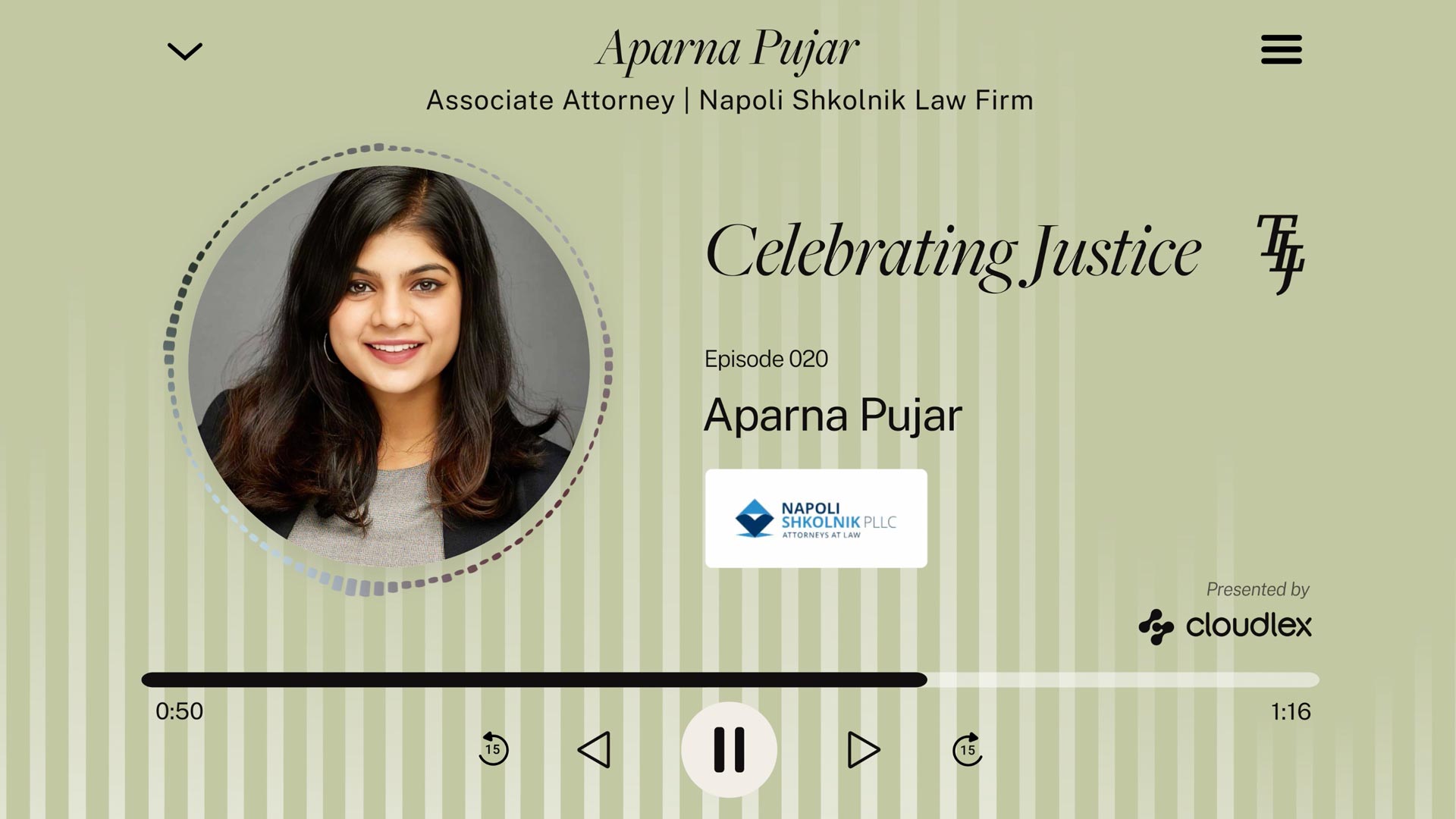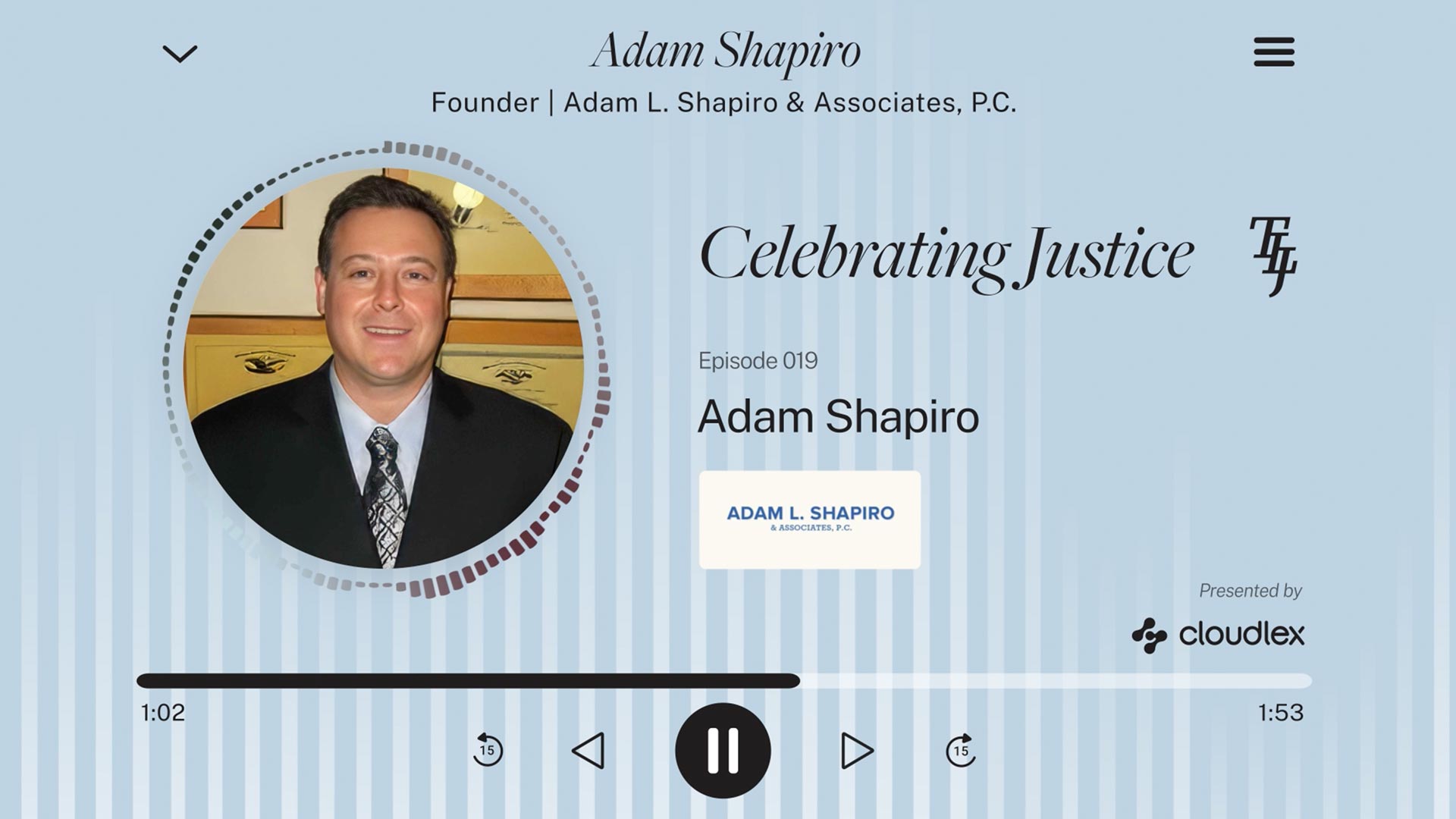Adam Wolk’s “Closing Argument”
And that’s what I do. I listen to them. I hear them. I gather all the information and I tell their story. I know that that impacts people’s lives. I know it impacts my clients when I get a good financial result for them, but I also know it impacts my clients when we just get to speak and they get to understand that somebody’s hearing about them, hearing of their loss, hearing of their struggles, and that they’re going to have an opportunity to voice it to someone, to say what the defendants did was wrong, to say what was taken from me or taken from my loved one should not have been taken. It’s a very individual personalized job. I think that’s why I like it so much because I really do enjoy it.
I mean, you get to help people, but I get to talk to people and learn their stories. And again, I, nobody’s coming to see me when they’re in a rough spot and they need somebody who has an expertise in an area that they’re unfamiliar with. It’s my job—that is a major part of being a plaintiff’s attorney.
It is a fulfilling part and it’s part of what I like to do. The other part that I think gets lost a lot is that personal injury law is absolutely necessary to have a safe society. It just is. You go into a store to buy something. That store is supposed to be safe for you to walk around in. Now, I would like to think that store owners will spend money to keep their store safe, but they won’t, and they don’t.
They keep situations safe. They keep a store safe because they know if they don’t, somebody gets hurt, they can be sued. We have laws, criminal laws that say you can’t rob or you’re going to jail. Those laws aren’t so clear when it says you need to make sure that you drive safely and don’t hurt somebody.
If you get in an accident and you didn’t intentionally do it, there’s not a legal repercussion per se, but there needs to be a repercussion because there needs to be an incentive for people to look where they’re driving. There needs to be an incentive for store owners to keep their stores safe. There needs to be an incentive for big corporations who have dangerous ingredients like asbestos to tell the people using it that they could die from it.
This is serious stuff. I mean, I think sometimes we get lost in your ambulance chaser, your this or that. You can walk safely in the streets because we sue those people who let their properties fall into disrepair and endanger others. You can be assured that the products being sold to you are most likely not going to hurt you because the corporations who know and only care about money know that if they put a product out there, that’s bad and going to hurt somebody.
Even if it saves them some money than making a good product, it’s gonna hurt them in the long run because plaintiffs’ attorneys are going to come and they’re going to sue them. They’re going to ask for money. They’re going to say you were wrong because you knew this was a dangerous product.
You thought you put it in the marketplace anyway. And now because of that, my client’s life is forever changed and you’re going to pay for it. We keep the world safe. I know it’s silly. I know it’s crazy, but we really do. I don’t think that people unfortunately go about the world saying, I want to make sure everybody is treated well and everybody’s safe and everybody’s good just because the system of justice that we have is something to be proud of.
I think it’s something that most attorneys lose sight of. In certain countries, there’s a king. If you do something, the king is going to decide what your punishment is or what you get. In other countries, it’s just a judge. In this country, when you’re hurt because of somebody else’s negligence, what we do is very unique and it’s beautiful.
It really is. We gather other members of your community where you live and ask them to be actuaries. Ask them to assess the injuries that you have sustained, that their peer has sustained, and ask them to come to a number that compensates them for their injuries. Ask them to look at somebody’s life, see how somebody’s negligence has impacted that life and as a community come to a number that will help that person make up for everything they’ve lost.
Also as a community come together and say, no corporation, you were negligent in putting this into the marketplace or no defendant driver. You were negligent because you didn’t look left before you made the right turn because you were in a rush somewhere and you were really only caring about yourself when you really need to care about everybody else in this world.
When you’re driving a 1,000-pound or 2,000-pound machine that can kill people, you don’t get to just say, I’m in a rush and I’m not going to look to the left because that’s going to change somebody else’s life. And when you do that and you hurt somebody. There’s going to be somebody to sue you. There’s going to be somebody to hold you accountable.
There’s going to be somebody that gets other people of the community to say, no, this is wrong. This is not how things should be. And how are we going to make things right? That’s what being a trial lawyer is. That’s the value of personal injury law. It’s keeping this world safe, speaking up for those who don’t have a voice.
And it’s making sure that people who have had their life absolutely destroyed, traumatized, or even just hurt a little, are compensated appropriately.
Click here to view Adam’s Profile.
Featured Articles
-
Trial Law News
Did Clearpoint Cross the Line Into Unauthorized Practice of Law in an Arizona Foreclosure Case?
Did Clearpoint Cross the Line Into Unauthorized Practice of Law in an Arizona Foreclosure Case? A January 2026 court order from the United States.
-
Trial Law News
Could RICO Finally Hold Big Pharma Accountable for Hidden Drug Risks?
Could RICO Finally Hold Big Pharma Accountable for Hidden Drug Risks? In a groundbreaking development for pharmaceutical accountability, Wisner Baum LLP has pushed a.
-
Trial Law News
Law Firm Pushes Back on AI Accusations After Court Flags Faulty Citations
Law Firm Pushes Back on AI Accusations After Court Flags Faulty Citations A prominent law firm has denied using artificial intelligence to generate flawed.
